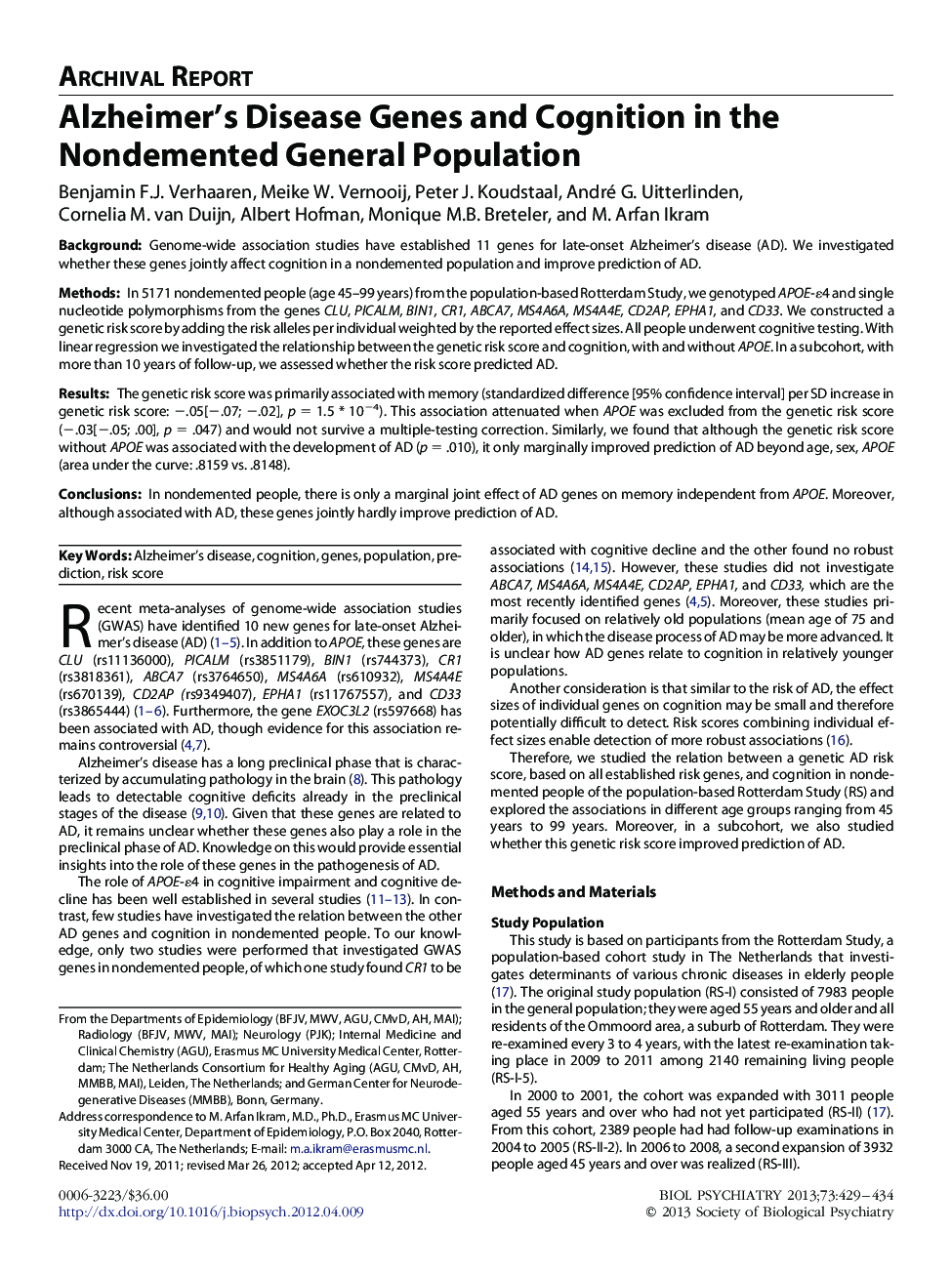| Article ID | Journal | Published Year | Pages | File Type |
|---|---|---|---|---|
| 4177923 | Biological Psychiatry | 2013 | 6 Pages |
BackgroundGenome-wide association studies have established 11 genes for late-onset Alzheimer's disease (AD). We investigated whether these genes jointly affect cognition in a nondemented population and improve prediction of AD.MethodsIn 5171 nondemented people (age 45–99 years) from the population-based Rotterdam Study, we genotyped APOE-ε4 and single nucleotide polymorphisms from the genes CLU, PICALM, BIN1, CR1, ABCA7, MS4A6A, MS4A4E, CD2AP, EPHA1, and CD33. We constructed a genetic risk score by adding the risk alleles per individual weighted by the reported effect sizes. All people underwent cognitive testing. With linear regression we investigated the relationship between the genetic risk score and cognition, with and without APOE. In a subcohort, with more than 10 years of follow-up, we assessed whether the risk score predicted AD.ResultsThe genetic risk score was primarily associated with memory (standardized difference [95% confidence interval] per SD increase in genetic risk score: −.05[−.07; −.02], p = 1.5 * 10−4). This association attenuated when APOE was excluded from the genetic risk score (−.03[−.05; .00], p = .047) and would not survive a multiple-testing correction. Similarly, we found that although the genetic risk score without APOE was associated with the development of AD (p = .010), it only marginally improved prediction of AD beyond age, sex, APOE (area under the curve: .8159 vs. .8148).ConclusionsIn nondemented people, there is only a marginal joint effect of AD genes on memory independent from APOE. Moreover, although associated with AD, these genes jointly hardly improve prediction of AD.
